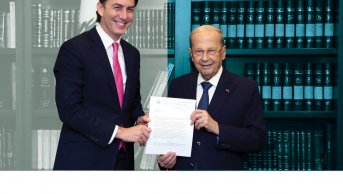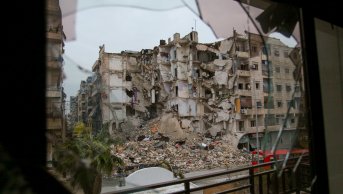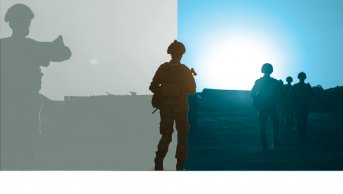A New Phase in Turkey’s Fight against YPG/PKK: Possible Operations toward Tel Rifat / Manbij

Details of a new Turkish operation to the north of Syria, which had been on Turkey’s agenda for a long time, have been uncovered with the statements by President Erdoğan on June 1, 2022. President Erdoğan said, referring to Tel Rifat and Manbij, that terrorism will be eradicated from these areas. The YPG/PKK’s ongoing territorial dominance in the north of Syria has increased Turkey’s security concerns. After the Operation Peace Spring, the Russian army and the militia groups affiliated with the Syrian regime filled the gap left by the withdrawal of the US forces thirty kilometers south of the border in Manbij and the east of the Euphrates. Therefore, in addition to YPG control, there is a limited presence of the Russian army 30 kilometers deep along the border line in Tel Rifat, Manbij, and the east of the Euphrates. In terms of the agreement signed between Turkey and Russia after the Peace Spring Operation, Russia has the responsibility to withdraw/push the YPG presence in these regions towards the regions under the control of the USA. However, no concrete steps have been taken in this direction until today, and the YPG has continued to use Tel Rifat and Manbij for terrorist actions against the Olive Branch and Euphrates Shield Operation areas. This situation delayed Turkey's objective of sweeping the areas 30 kilometers deep along Turkey's borders of all forms of terrorism. However, Turkey showed that it was determined at this point and announced an operation plan that included Tel Rifat and Manbij in the first place. However, it is possible to say that these operations will be followed by new ones unless Turkey's security concerns are resolved.
"Afrin Liberation Forces" operating under the umbrella of the YPG are present in Tel Rifat. In addition to these, Russian military forces, regime forces, and Iranian-backed militias also operate in this region. Tel Rifat has been used as a base to target Turkey's forces in the region and destabilize safe zones since Operation Olive Branch. Therefore, sweeping the YPG from Tel Rifat is critical for the security of the Euphrates Shield and Operation Olive Branch areas. When the YPG captured Tel Rifat with Russian air support in 2016, the locals were forced to migrate to the north. Afterwards, YPG settled Kurdish people in Tel Rifat. One of the reasons behind this effort by the YPG is that they will utilize them as human shields for terrorist forces deployed in the region. Although the civilian population in the region is aware of this situation, they have difficulty leaving the region due to the pressure and threats of the YPG. Although the possible operation by Turkey in the region will be aimed at addressing Turkey's security concerns, the people who will indirectly benefit the most from this situation will be the civilians held in Tel Rifat under YPG pressure.
It is possible that Turkey is in coordination with Russia regarding the operation to be carried out in Tel Rifat. As a matter of fact, Ankara engaged in high-level contacts with Russia while signaling an operation in northern Syria by expressing its security concerns. Lastly, President Erdoğan held a telephone conversation with his Russian counterpart, Putin, on May 30, 2022. At this meeting, the Syria issue and Turkey's concerns in the region were discussed. The presence of Russian forces in the Tel Rifat region necessitated Turkey's coordination with Russia. Both the safe departure of the Russian forces from the region and Russia’s inaction against Turkey's air operations show the necessity of coordination between the two countries. It is not possible to say that Turkey has entered into coordination with the USA for this region. As a matter of fact, this is far outside the scope of US activity. However, the statements made by the US reveal that it is against Turkey's possible operation. The US bases this objection on the argument that the fight against ISIS will suffer. However, one could argue that the possible areas of operation are far from the recent ISIS activities. Although the US is expected to have some criticism towards Turkey over its emphasis on the stability of Syria, it will have no role in preventing the operation.
Manbij is in a different position compared to Tel Rifat. Manbij, as the most important YPG-held territory west of the Euphrates, has been the subject of Turkish-American diplomatic negotiations for years. Despite tens of meetings, both between delegations and head-to-head, no progress was made about Manbij, where the YPG remains present . Not paving the way for the sweeping of the YPG from Manbij, the US chose cooperation with Russia over Turkey's security concerns as a NATO ally. It withdrew from the region after Operation Peace Spring and remained silent when Russia swooped in to the regions left vacant. Following the US withdrawal, Russia left the YPG alone after taking over Manbij and deployed regime forces and Iran-backed militia in the northern borders to defend against a possible Turkish operation. In other words, the regime forces were made to act as a shield protecting the YPG. Just like the case in Tel Rifat, Manbij was subjected to demographic engineering involving the forced migration of Arabs, who were the majority in the region, and Turkmens, who live in the northern parts of Manbij. Since this region is of great importance for YPG influence in the west of the Euphrates, YPG forces have been brought to the region, and Manbij has served as a base for possible expansion moves to the west of the Euphrates, in addition to demographic changes. The fact that the YPG control zones in Raqqa are connected to Manbij via the Euphrates river has increased the strategic importance of this region. As a matter of fact, Manbij has a strategic position for the YPG in terms of claiming the Euphrates River, the most important water source in the region, and achieving its goals of expansion towards the west. A prospective Turkish operation in this region will put an end to the YPG's objectives in the west of the Euphrates and also its presence in the east of the Euphrates may begin to weaken. The fact that Russian forces are on the ground against Turkey's operation shows that there is coordination between Turkey and Russia for this region as well. If the regime forces pose resistance, it is likely that Turkey will retaliate strongly and in a way that is similar to Operation Spring Shield. The presence of Iranian-backed militias may also pose a threat to Turkey. From the moment Turkey signaled an operation to the north of Syria, anti-Turkey rhetoric started rising in Iran. Finally, Iranian Foreign Ministry Spokesperson Said Hatibzade stated on 29 May that they would not accept Turkey's military operation in the region and called on Turkey to solve its problems only through dialogue. The fact that Iranian-backed militias fill many places vacated by Russia after the Ukraine crisis provides a significant advantage in the field for Iran, which is discomforted by the prospect of growing power for Turkey in the region. Another obstacle in front of Turkey in the Manbij operation may be the USA. The United States does not have military forces that would hinder the operation in the field. However, unlike Tel Rifat, it may be possible for the USA to impose some sanctions against an operation toward Manbij. In addition, it is highly likely that any prospective operation will be criticized by Western public. However, it can be said that such pressure tools are not a factor that will prevent a possible operation.
Turkey's ultimate goal is to clear the entire Turkey-Syria border from PKK/YPG militants. Depending on this goal, it can be expected that Turkey will target Ain al-Arab, which is situated between the Peace Spring and Operation Euphrates Shield regions after a prospective operation toward Tel Rifat and Manbij. While this situation is of vital importance for Turkey's border security, it is also important for refugees who want to return to Syria to have a suitable living space. With the sweeping of the Tel Rifat and Manbij areas from terrorism, attacks on existing safe areas will be reduced to a large extent, and civilians who have been driven from their places by demographic engineering attempts will also be able to return to their homes.










